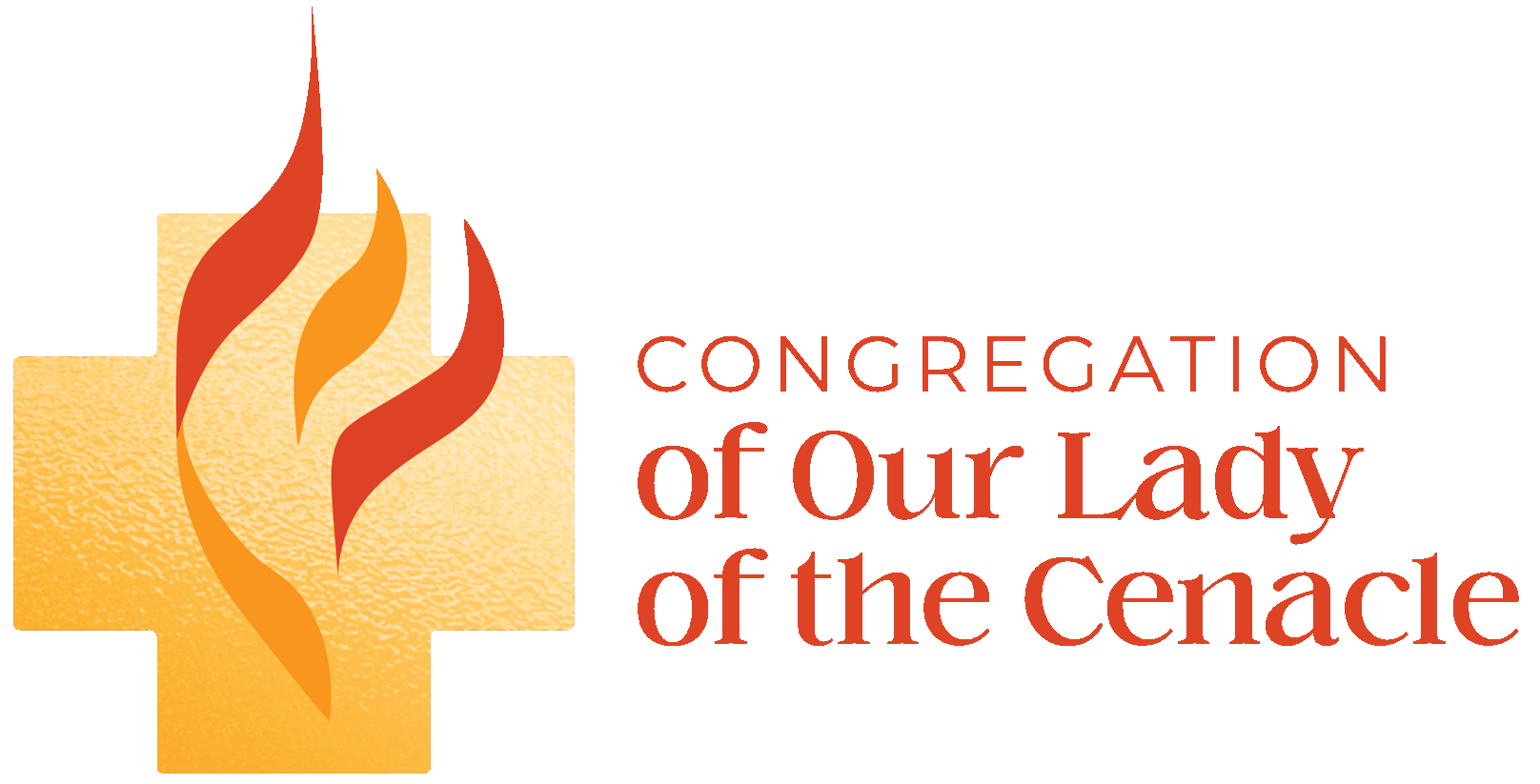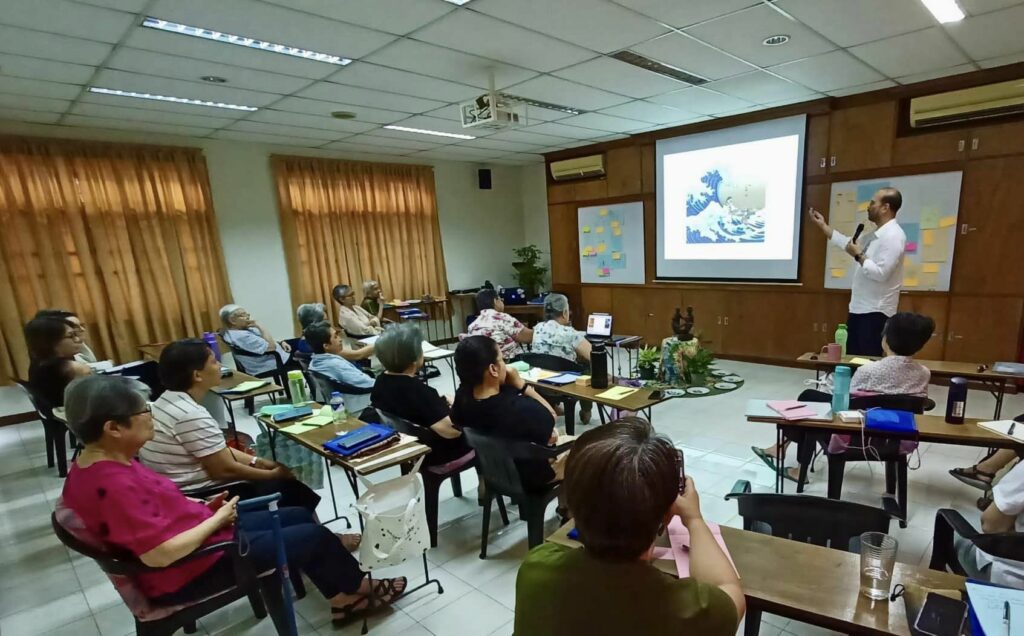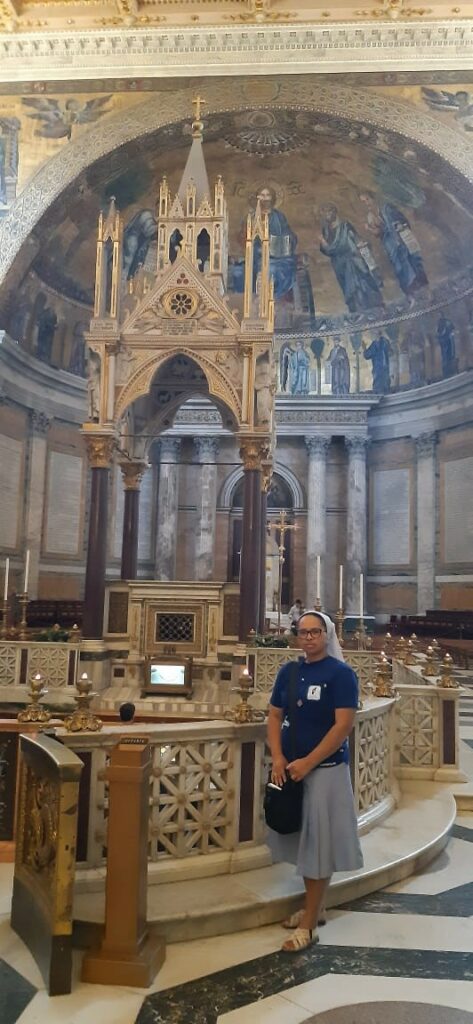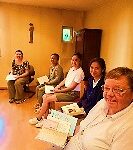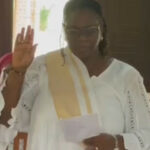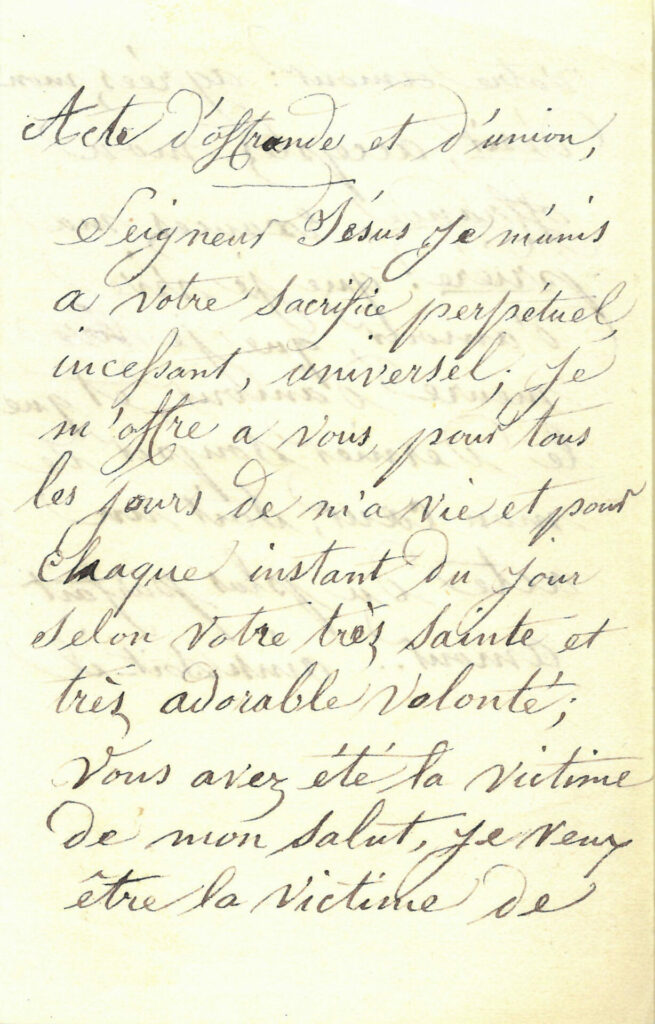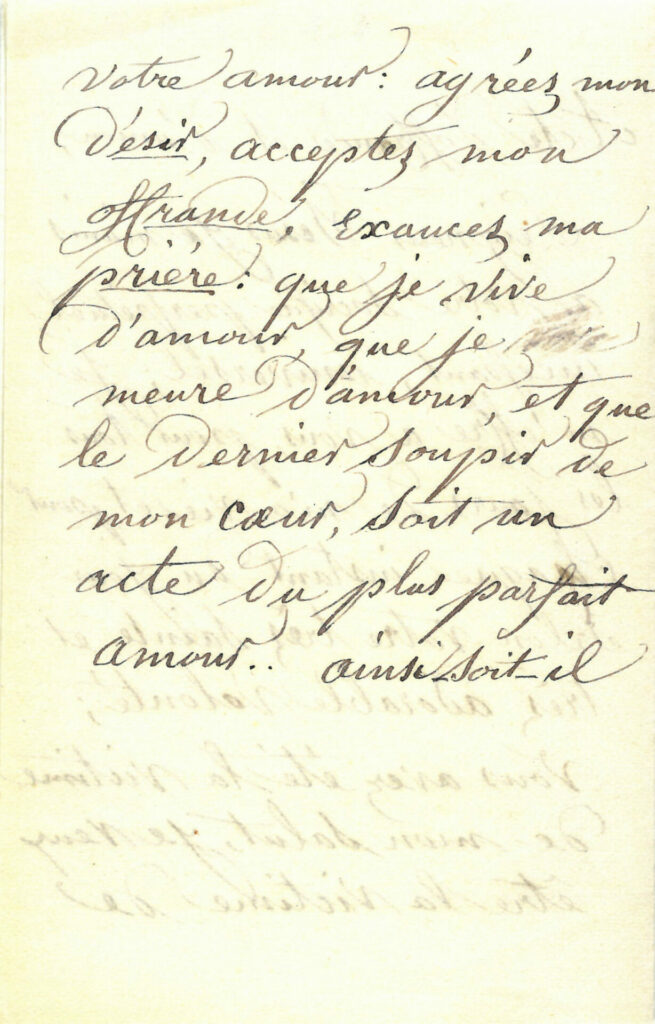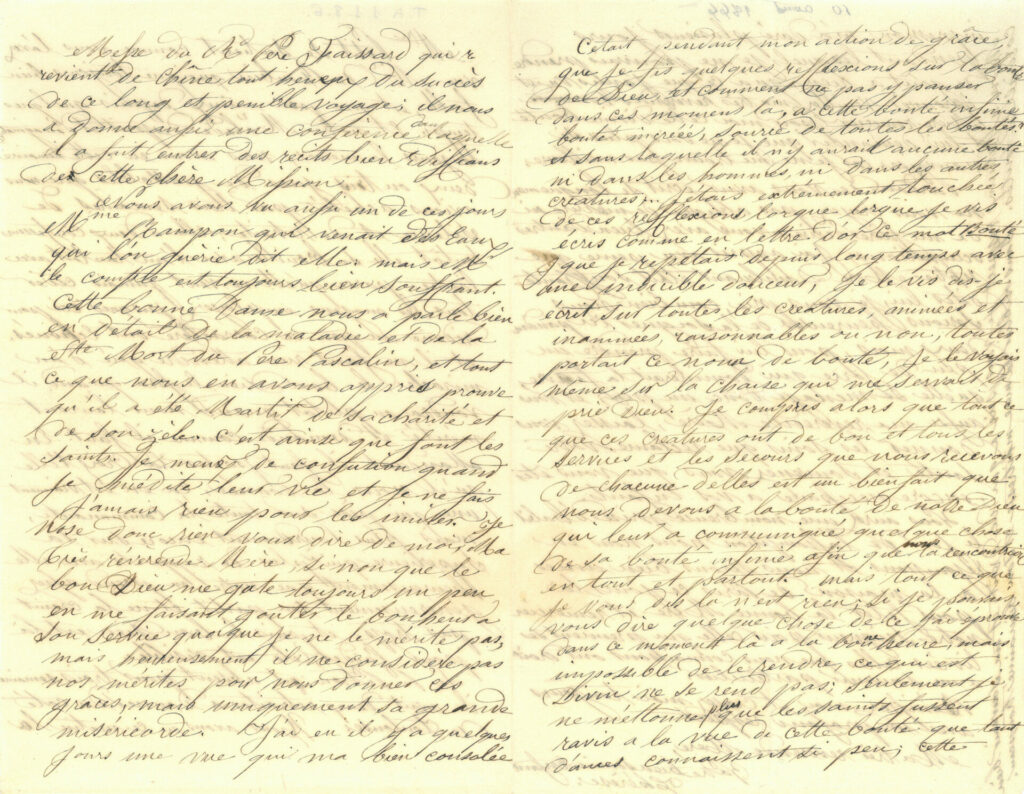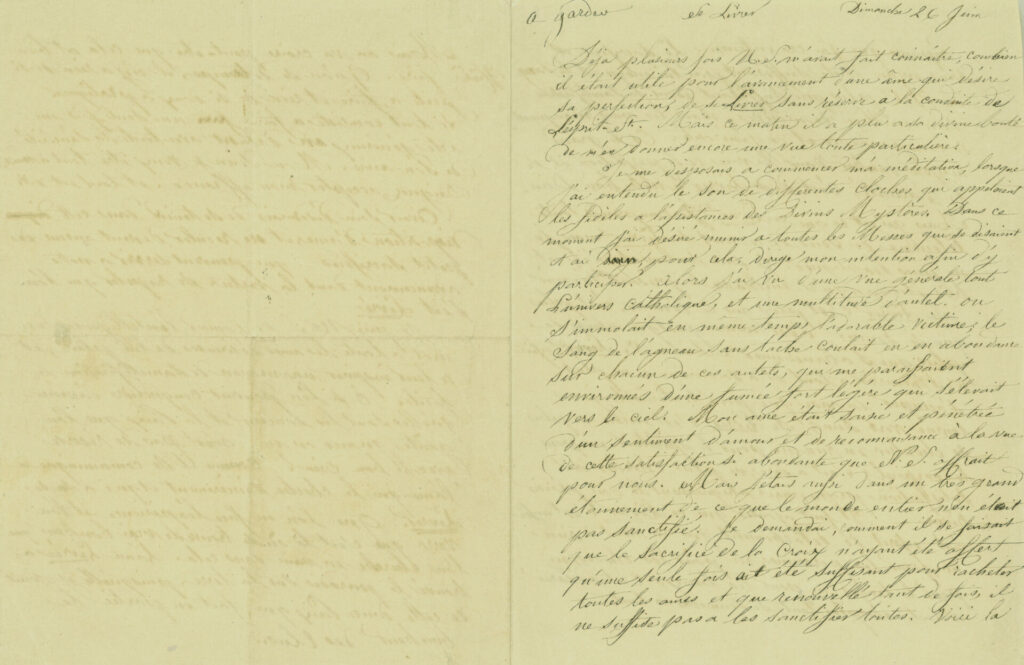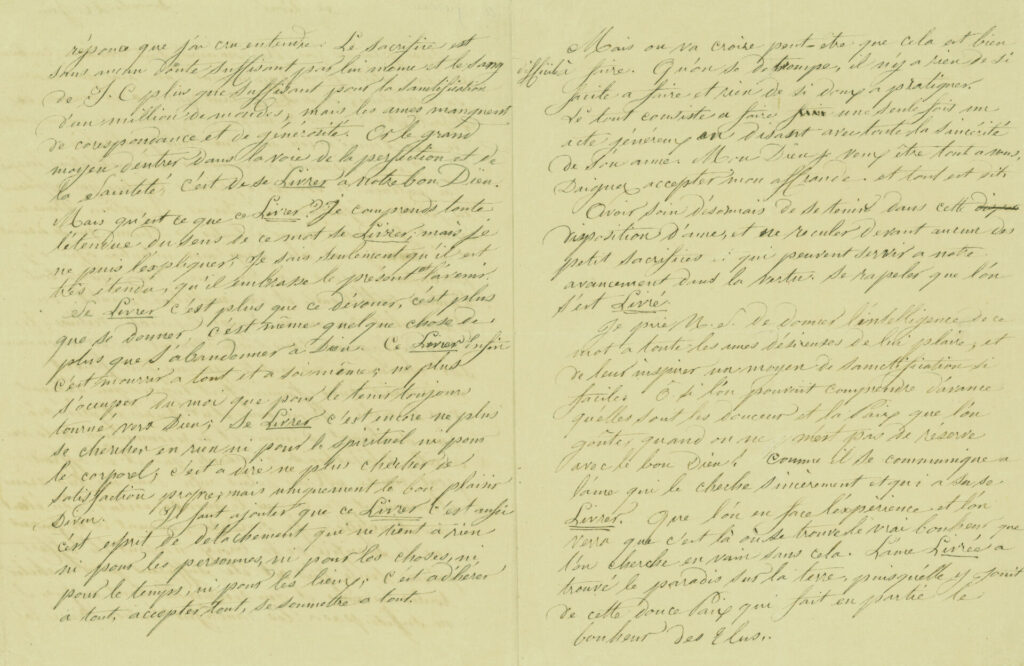During our May 2024 Regional Assembly, we allotted two days to exploring ECOLOGICAL CONVERSION so it could lead us toward the healing and renewing our common home. In these two days, the presentations about the current main ecological concerns and their root causes were overwhelming. The global scope of the realities was quite complex and not easy to absorb. It is one of those experiences that can easily lead to discouragement and even a paralyzing sense of overwhelm. .
The suggested grace for each day became my pegs in making sense of what my head was absorbing and what my heart was feeling from the memories being triggered. Looking back to those sessions, I got in touch with a number of emerging insights from my experiences. The first day’s grace was about realizing our alienation from creation, from others, from God and from ourselves; while the second day’s grace had to do with recovering our kinship leading to reconciliation with nature, with others, with God and with ourselves..
These played out in the movie, “My Octopus Teacher” (2020) about a man experiencing burnout and being taught by nature to find a way to his holistic renewal — particularly by the octopus he formed a relationship with during in his explorations of the sea. The movie narrated the transformation of this man’s relationship with the octopus from object (just one of the sea’s many creatures) to subject (after establishing a particularly personal relationship). This transformed relationship eventually changed all his other relationships.
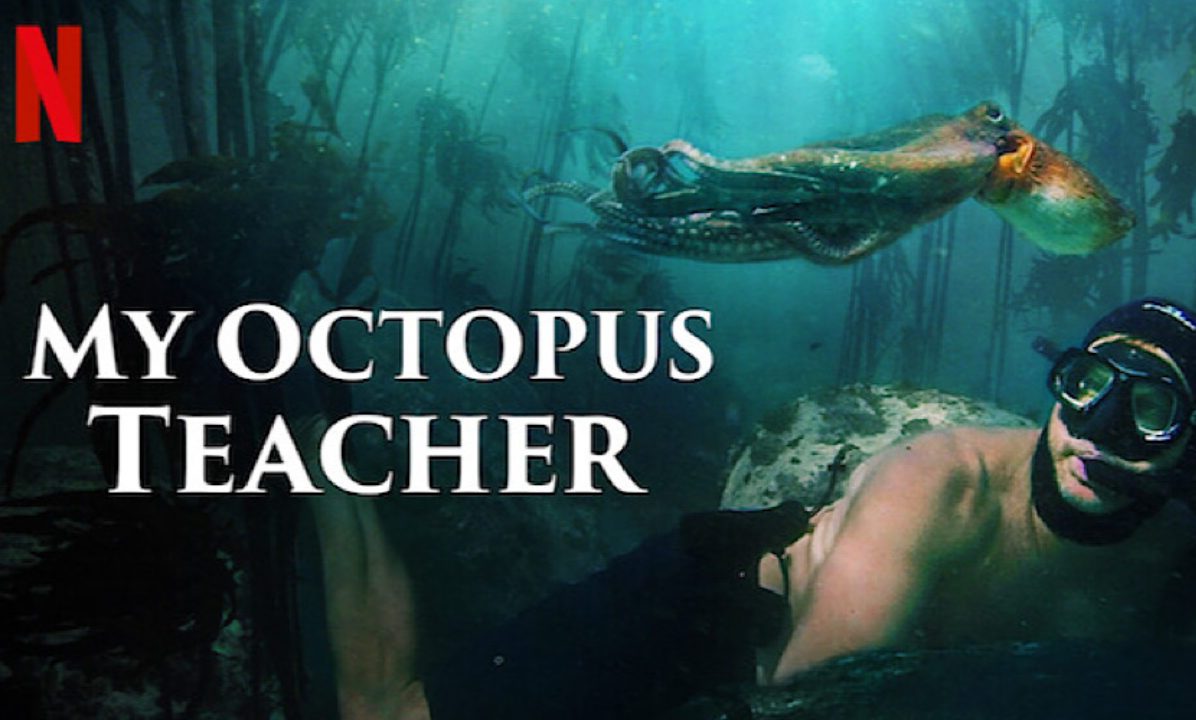
The movie surfaced in me numerous childhood memories of relating with creation from a traditionally Filipino worldview. I grew up as a child with stories from my grandmother and my yaya (caretaker) about other creatures and spirits inhabiting the environment around us — living in the trees, in the plants, in the different bodies of water, in the boulders, in the mounds in the garden, in the forest, etc. They were called engkanto (literally, the enchanted ones) or what in the dialect was referred to as “those not like us“. The stories usually revolved around how to behave, how to respect what was ‘theirs’ and the negative consequences that would befall the child (or other unmindful adults) who violated the code of respectful relationships with ‘them.’
There were stories of how these engkantos (the enchanted people) would lure ordinary humans to their kingdom so they became an engkanto. Or how some unmindful child or disrespectful adult would get sick because they may have destroyed the enchanted ones’ property or home. This sickness could also be a result of violating their boundaries when one walked in the forest and accidentally disturbed their abode. Even watering plants in the garden could potentially anger the enchanted ones or the dwarves living in the garden mounds. To avoid such unhappy incidents, one had to say “Tabi!” This loosely translates to “excuse me” or some greeting acknowledging the others’ existence and asking for their permission to pass through or encroach into their space. Health could be restored if reparation is done through the intervention of a faith healer. The stories stress the need for connectedness and respect for the others’ space. They also point to the reality that we humans have no control of all that exists. Hence, the need for right relationships, interdependence and balance.
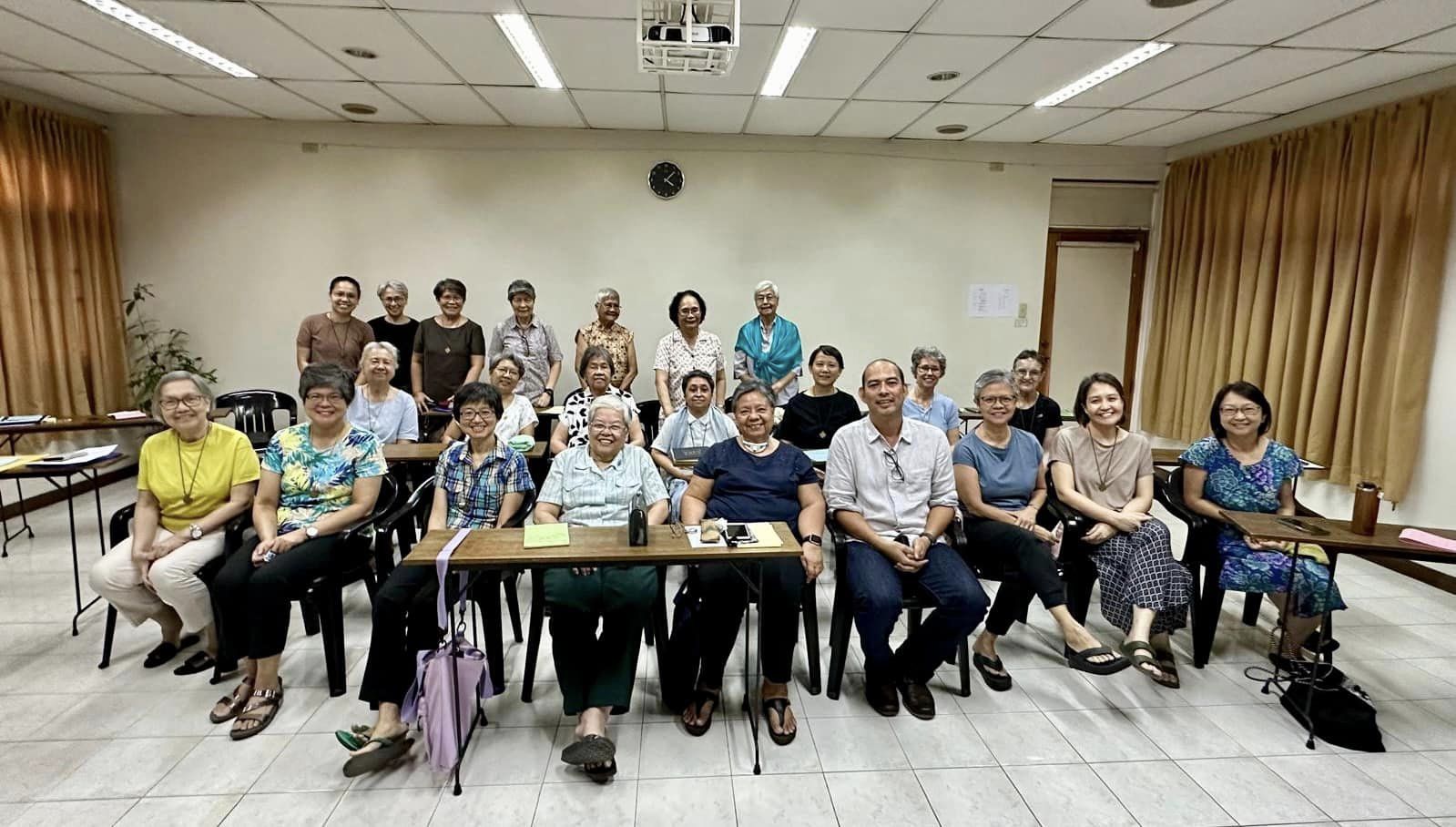
During our Regional Assembly, I was flooded with memories and stories with its mixture of feelings. I realized how the traditional Filipino cultural formation regarding right relationships with creation was effectively instilled in me — even if fear of punishment was a great motivator. The cultural formation was done through a prescriptive approach (concerned with ‘how to’) But if the story teller was creative, the more positive picture of what right relationships with the “others not like us” became highlighted. When I reviewed my own story, I realized that my first introduction to ecological relationship through these cultural beliefs were repressed due exposure and education in the Western, scientific mindset (more speculative approach). It was also bolstered by a faith view that interpreted anything not baptized as under the domain of the evil one!
I felt the stirring of an invitation to re-visit the cultural stories still alive in my consciousness as a door to ecological conversion. Ecological conversion aims to invite us to a transformation of our hearts and minds toward greater love of God, each other and creation. I realize that I need first to acknowledge that I have been alienated from what I have been introduced to – something that held the potential to an ecologically balanced world view. The resulting consequence of this acknowledgement is to embark on the path towards reclaiming my kinship with all of creation and with God. How can I work toward the integration of the cultural formation I received as a child with the scientific and spiritual views that are available to me now?
Like the man in the movie, “My Octopus Teacher”, how do I allow the stories that encapsulate the insights of generations teach me the way toward ecological conversion? With the inherent wisdom of my ancestors in the culture and in the faith, how can I/we create a new narrative of co-existence and collaboration with all creatures — whether visible or invisible to the eye — in this beautiful environment we all call ‘our’ shared home? I need to take care that this evolving worldview does not fall into the ‘either/or’ categories where the traditional is pitted against the scientific, but adopt the ‘both/and’ mentality which can hold seemingly disparate narratives. Although I take a modest step, it is one that sparks an inner fire that I hope will lead to a change in mindset. At this point, I remind myself of an ancient Asian wisdom saying — “The journey of a thousand miles begins with a single step.”
Malén Java, rc
30 juillet 2024
Cénacle de Cebu (Philippines).
